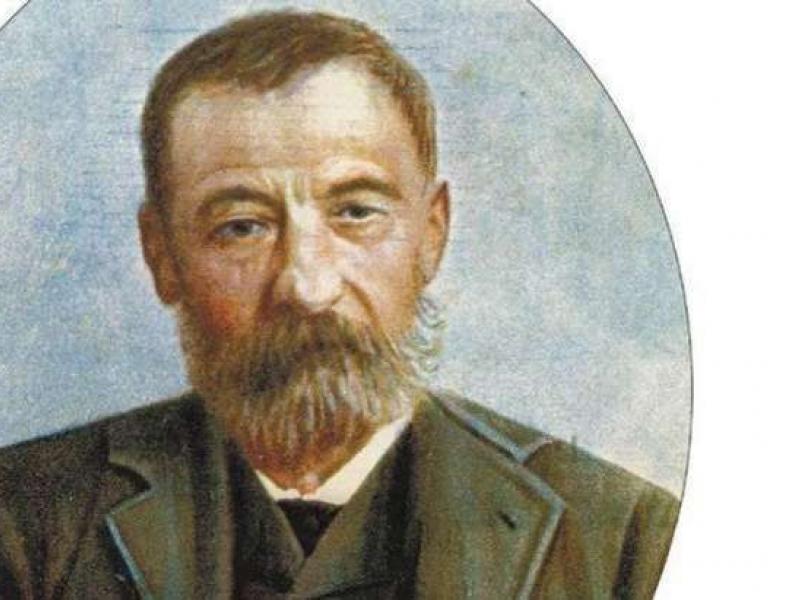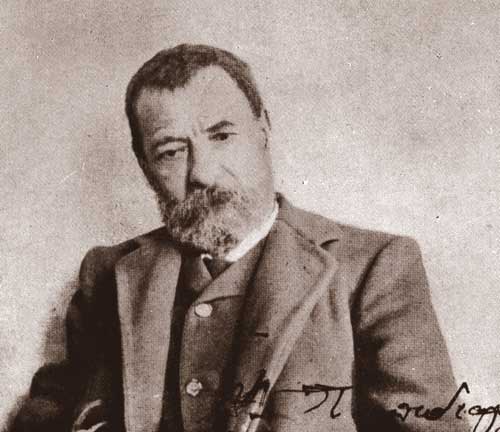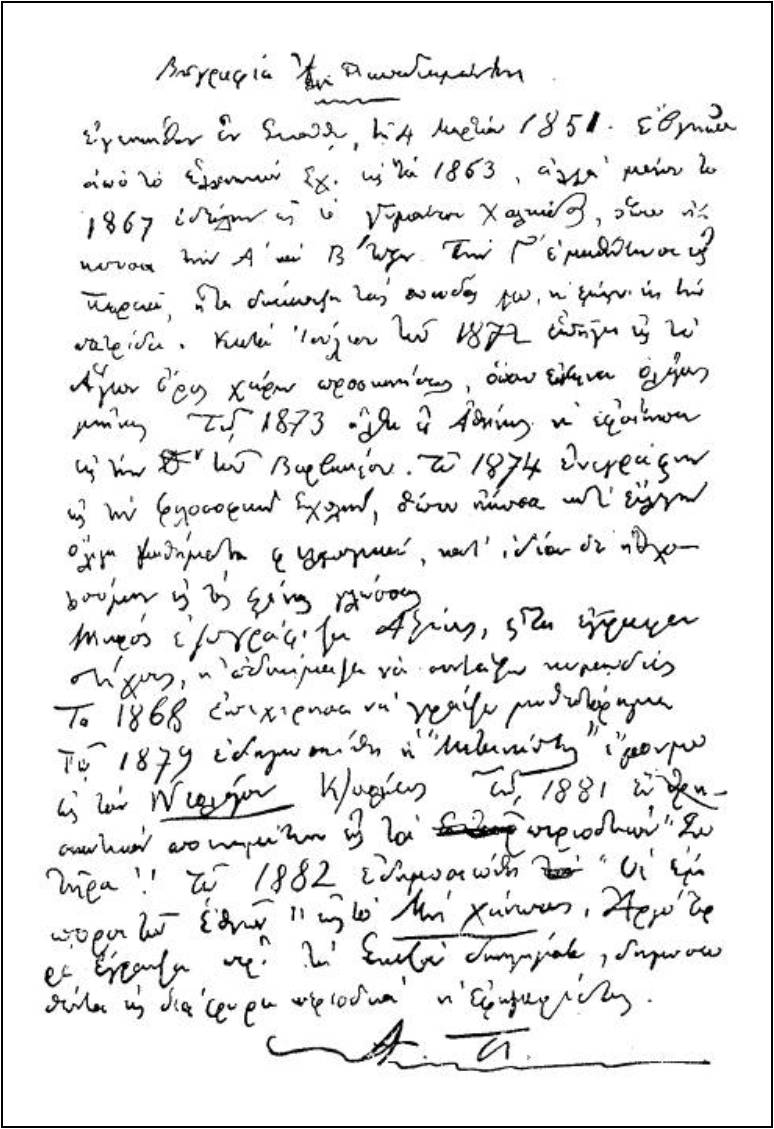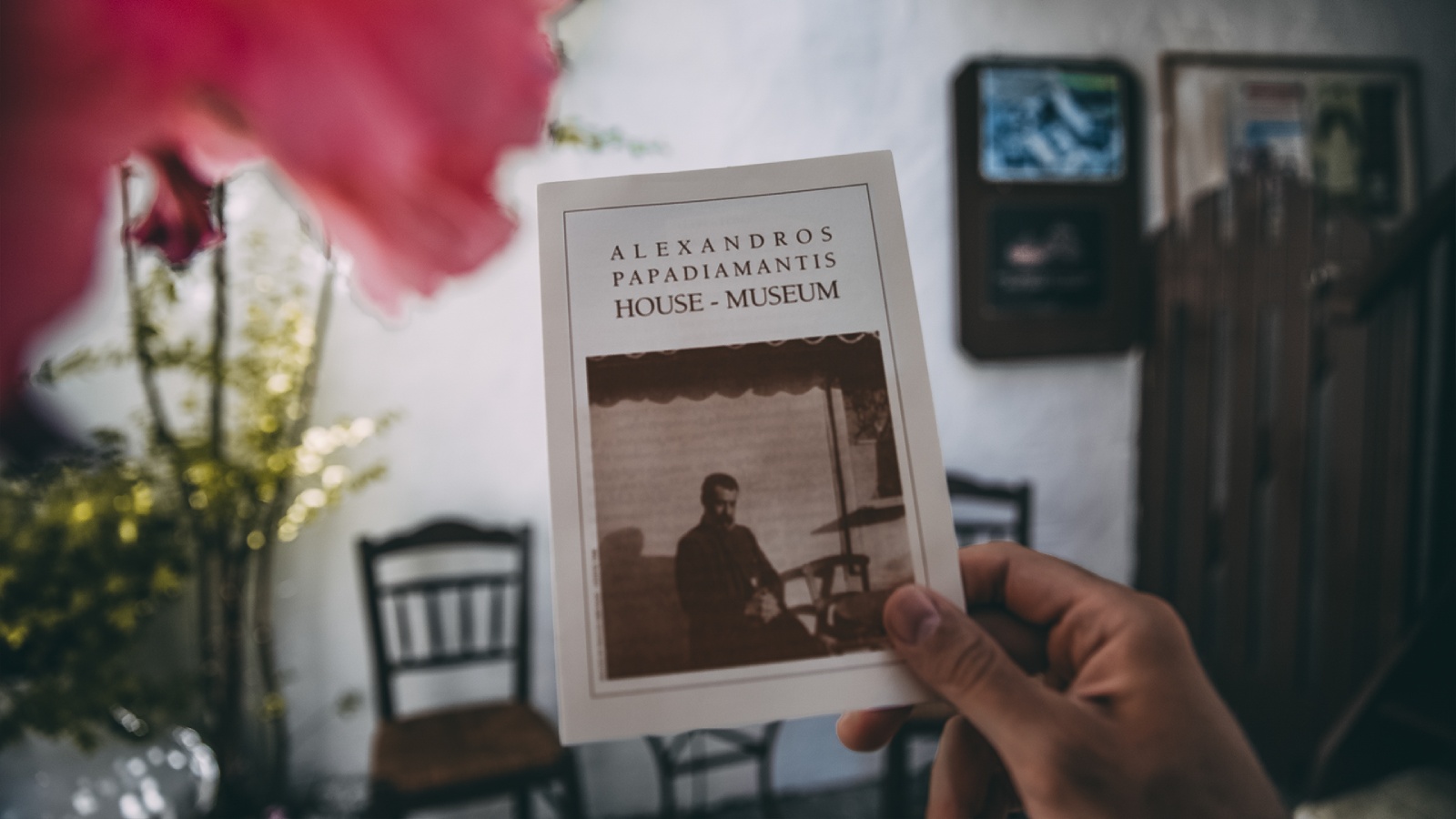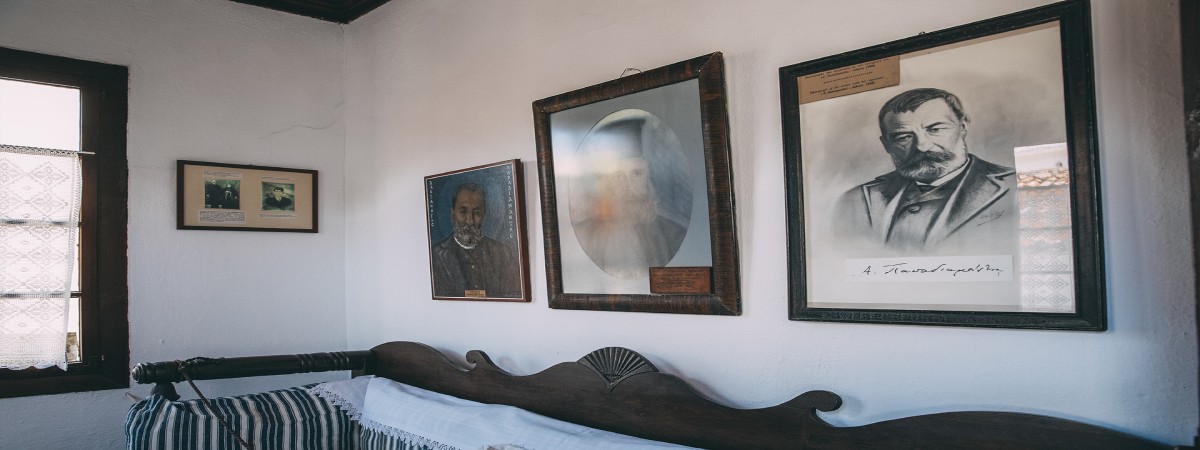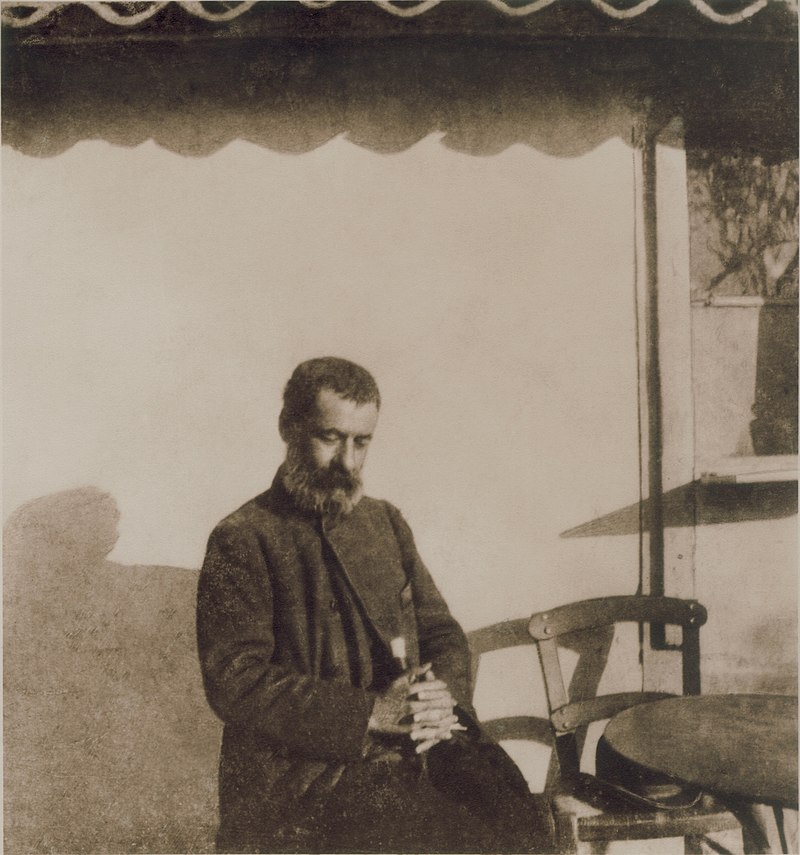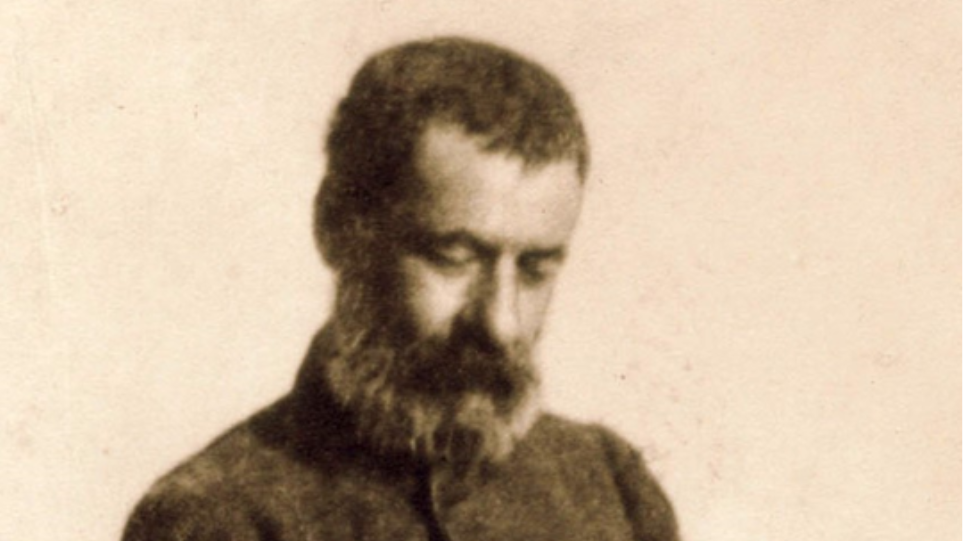Alexandros Papadiamantis
Alexandros Papadiamantis (1851-1911)
Papadiamantis was born on the 4th of March 1851, on the island of Skiathos, and passed away on the 3rd of January in 1911. He was considered by many as one of the most significant, leading figures of Greek literature, also known as “the Saint of Greek literature”, “top of the top” or “kosmokalogeros” (: a “monk in the world”) according to C.P Cavafy. His writings, anything from journalism and short stories to serialized novels, were highly acclaimed by Greek literature readers and critics.
He had four sisters and two brothers and was, from an early age, familiarized with religion and the church. He enjoyed small churches and the peaceful, quiet life of the island. All the above, along with the fact that his father’s profession was priesthood, undoubtedly played a crucial role in the making of his personality, which was very close to Christianity and which he preserved throughout his entire life.
In 1860s, he started school in Skiathos up until the 8th grade, when he had to continue in Skopelos, since, by that time, there was no proper schooling in Skiathos available. Furthermore, he struggled to make it to Junior High School, as his family was facing serious financial problems. In 1867s, he completed the first grade of Junior High and in 1869s the second in Chalkida. Then, although he enrolled in Peireus for the 3rd grade, in the early 1870s, he came back to Skiathos. In 1872, he moved to Mount Athos (Holy Mountain) where he stayed for 8 months as a novitiate. However, he eventually decided he was not ready to embrace and submit to this way of living and went back to Athens in 1873 to continue the 4th grade of “Varvakio” Junior High school. A year later, he registered in the “Greek Literature and Culture” department of the University of Athens. Yet, he never actually completed his studies, which totally disappointed his father, who expected him to return to the island as a professional teacher and help educate his four sisters. We should, also, mention here that whenever Alexandros was on the island, his three unmarried sisters were always taking care of him and remained loyal to him even during his most difficult times. However, he always had to return back to Athens because his family’s poor financial status demanded of him to do so.
Papadiamantis was born on the 4th of March 1851, on the island of Skiathos, and passed away on the 3rd of January in 1911. He was considered by many as one of the most significant, leading figures of Greek literature, also known as “the Saint of Greek literature”, “top of the top” or “kosmokalogeros” (: a “monk in the world”) according to C.P Cavafy. His writings, anything from journalism and short stories to serialized novels, were highly acclaimed by Greek literature readers and critics.
He had four sisters and two brothers and was, from an early age, familiarized with religion and the church. He enjoyed small churches and the peaceful, quiet life of the island. All the above, along with the fact that his father’s profession was priesthood, undoubtedly played a crucial role in the making of his personality, which was very close to Christianity and which he preserved throughout his entire life.
In 1860s, he started school in Skiathos up until the 8th grade, when he had to continue in Skopelos, since, by that time, there was no proper schooling in Skiathos available. Furthermore, he struggled to make it to Junior High School, as his family was facing serious financial problems. In 1867s, he completed the first grade of Junior High and in 1869s the second in Chalkida. Then, although he enrolled in Peireus for the 3rd grade, in the early 1870s, he came back to Skiathos. In 1872, he moved to Mount Athos (Holy Mountain) where he stayed for 8 months as a novitiate. However, he eventually decided he was not ready to embrace and submit to this way of living and went back to Athens in 1873 to continue the 4th grade of “Varvakio” Junior High school. A year later, he registered in the “Greek Literature and Culture” department of the University of Athens. Yet, he never actually completed his studies, which totally disappointed his father, who expected him to return to the island as a professional teacher and help educate his four sisters. We should, also, mention here that whenever Alexandros was on the island, his three unmarried sisters were always taking care of him and remained loyal to him even during his most difficult times. However, he always had to return back to Athens because his family’s poor financial status demanded of him to do so.
From the moment he enrolled in university, he immediately started working as an amateur journalist and a translator for English and French (he was one of the very few who were able to learn such foreign languages). Nevertheless, his earnings were extremely poor, forcing him to be frugal and to live in seedy, humble rooms. Afterwards, he worked as a journalist for “Acropolis” newspaper, earning a surprisingly high salary in comparison with other journalists of his time (250 drachmas per month). Yet, he was never good at money management. His salary covered his rent, but he didn’t stop there: he was always sending money back to Skiathos to help support his family, plus, he constantly provided aid to the poor, with, as a result, left him struggling to pay even for his daily minimum needs.
Papadiamantis was, for most of his life, a lonely man, who found pleasure in being alone and “traveling” spiritually. He sought for mental and spiritual inner relief by “drawing” all his memories onto his poems, his highly poetic prose and his novels (most of which reanimate old legends of his beloved island). In late March, 1908, he decided to permanently leave the city of “serfdom and plutocrats”, as his wrote, and return back home. In January 1911, he died by a severe deterioration of his health. During his funeral, every local -those who knew him personally and those who didn’t- was heavily mourning. Moreover, as soon as the news regarding his death left the island and spread, the heavy grief was felt by each and every Greek citizen. Many formal memorials were organized in Athens, Istanbul, Alexandria and elsewhere. The unveiling of his bust took place in 1925, in Skiathos, and his grave is kept preserved on the island’s cemetery.

